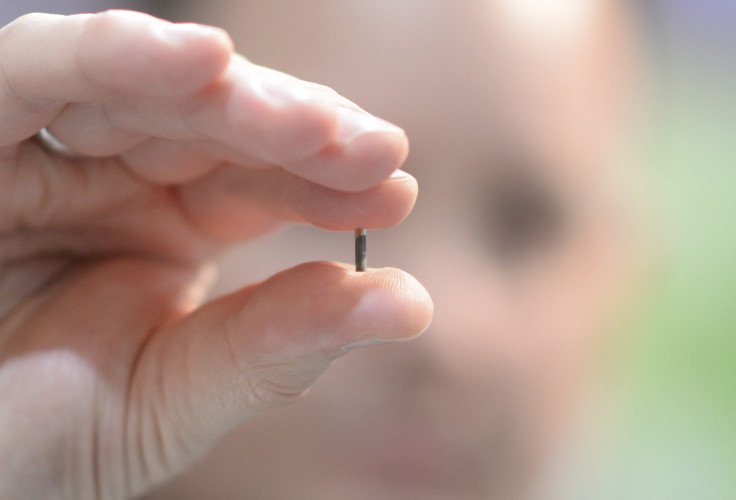Indonesia wants all child sex offenders to be tracked using RFID microchips

The Indonesian government is keen to enforce a new law that will require all rapists and child sex offenders to be implanted with radio frequency identification (RFID) microchips that will track them 24 hours a day, seven days a week for the rest of their lives after they are released from prison.
Minister of Research, Technology and Higher Education Mohamad Nasir told Indonesian TV channel Berita Satu that the government is interested in using RFID microchips to track offenders, but it is still waiting for the House of Representatives to vote on bringing into law a new Regulation on Sexual Violence against Children.
The new bill will make sexual violence against children punishable by 20 years in prison, and convicts will be required either to be tracked by RFID or submit to chemical castration. The names of those convicted will also be released to the public.
What are RFID chips?
RFID chips are tiny devices that consist of a small chip and an antenna. The chips make use of electromagnetic fields to automatically identify and track tags attached to objects or, in this case, humans.
Nasir added that the RFID chips would ideally need to be bulk produced locally in Indonesia, and to that end, the government has been in talks with Politeknik Negeri Batam (Batam Polytechnic), which has a laboratory that manufactures microchips.
Indonesia is considering such tough measures against pedophiles following the gang rape and murder of Yuyun, a 14-year-old girl who was abducted on her way home from school on 2 April, and her body dumped in a rubber plantation. Police arrested 12 of the 14 men connected with the crime, some of them under the age of 18.
The horrific case rocked the country and although local media initially did not publicise the case at all, public outage led to a viral Twitter campaign #Nyala untuk Yuyun (Candles for Yuyun) with more than 23,000 retweets, and activists galvanised the public to join protests held outside the presidential palace in Jakarta on 4 May.
Public outrage over numerous incidents in Indonesia
"I hope this movement won't stop in social media. We need to fight sexual violence offline and do everything we can, using the skills we have. Sexual violence is an emergency issue in Indonesia, but most people don't care about it. We need to be together. If not, we won't find the way out," activist Kartika Jahja told the BBC.
Multiple cases of gang rape have been reported in recent years in Indonesia, including that of a six-year-old boy at Jakarta International School, of a widow and of a 22-year-old Malaysian student.
According to a 2013 Lancet report for the United Nations on sexual violence in Asia and the Pacific, the study found that between 2-6/8% of all Indonesian men have at some point in their lifetimes committed multiple perpetrator rape, and that 90% of all the rapists in Indonesia were in the 15-29 age group when they committed their first rape.
© Copyright IBTimes 2025. All rights reserved.






















